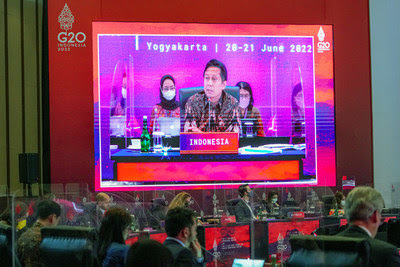No. 1 PMS and No. 1 guest messaging platform join forces to integrate guest engagement solutions seamlessly into day-to-day lodging business operations
Cloudbeds Acquires Whistle
SAN DIEGO, June 27, 2022 (GLOBE NEWSWIRE) — Cloudbeds, the hospitality management platform powering more reservations and happier guests for lodging businesses around the globe, announced today at HITEC 2022 the acquisition of the industry’s leading guest engagement solution, Whistle. Together, the companies will integrate their best-in-class technologies to remove friction points in the guest journey through a single platform.
“The term contactless is becoming far too synonymous with hospitality,” said Richard Castle, COO and Co-Founder of Cloudbeds. “We want more contact between lodging businesses and their guests to create purposeful touchpoints, answer questions and provide guidance through the entire guest journey. Research shows that engaged guests spend more, leave better reviews and the majority prefer to communicate via digital channels — Whistle makes it all possible. Whether it’s a booking engine chat or front desk text request, Whistle positions Cloudbeds customers to be a part of the guest journey from discovery to post-stay, removing barriers that might hinder a booking or positive review.”
Whistle leads the industry in guest engagement with unified communication tools, digitized arrival experiences and more. Current customers include major hospitality brands and hoteliers around the world, including Choice Hotels, Accor, IHG and Four Sisters Inns, among others. Founded in 2015, the company has been rated the no. 1 guest messaging software by Hotel Tech Report for five consecutive years.
Whistle will play an important role in the company’s vision for creating a fully frictionless solution that enables guests to engage with lodging businesses on their own terms. Simultaneously, it will give lodging businesses a unified platform to more efficiently manage points of contact throughout the entire guest journey.
“Our goal has always been to give lodging businesses a unique, easy-to-use solution that simplifies and streamlines the way they communicate,” said Christopher Hovanessian, CEO and Co-Founder of Whistle. “Cloudbeds has a clear vision for building a better, more frictionless hospitality experience via a unified platform. Together, we can make a greater impact on the industry that benefits not only the guest, but also the property staff and the lodging business itself.”
Following its Series D funding announcement in November, Cloudbeds has doubled down on its commitment to “more reservations, happier guests” with three acquisitions and the introduction of several new product offerings to address major pain points for both operators and guests. Driven by an aggressive product roadmap, the company has nearly tripled in size over the past year, with more solutions set to roll out in Q3 designed to help hoteliers grow their businesses.
For more information, visit cloudbeds.com/whistle.
Cloudbeds will share further details about the acquisition at HITEC 2022 in Orlando, during a press event at 1:30 p.m. ET in Booth # 1701 on Tuesday, June 28.
About Cloudbeds
Cloudbeds provides the platform that powers hospitality, driving streamlined operations, increasing reservations and revenue, and enabling memorable guest experiences for lodging businesses of all sizes and types across the globe. The award-winning Cloudbeds Hospitality Platform seamlessly combines solutions for front desk, revenue, distribution, guest acquisition, and guest engagement in a single unified system, enhanced by a marketplace of third-party integrations. Cloudbeds was named No. 1 PMS and No. 1 Hotel Management System by Hotel Tech Report in 2022 and recognized by Deloitte’s Technology Fast 500 in 2021. For more information, visit www.cloudbeds.com.
Contact:
Angela Petersen
[email protected]
A photo accompanying this announcement is available at: https://www.globenewswire.




